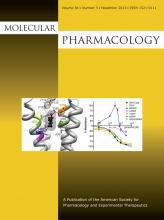Abstract
The ATP-binding cassette, subfamily G, isoform 2 protein (ABCG2) is an important member of the ABC transporter superfamily, which has been suggested to be involved in multidrug resistance (MDR) in cancer. Its diverse range of substrates includes many common chemotherapeutics such as imatinib, doxorubicin, and mitoxantrone. Physiologically, ABCG2 is highly expressed in areas such as the blood-brain barrier and gastrointestinal tract, where it is thought to play a role in protection against xenobiotic exposure. High ABCG2 expression has also been found in a variety of solid tumors and in hematologic malignancies and has been correlated with poorer clinical outcomes. Furthermore, ABCG2 expression is a characteristic feature of cancer stem cells, which are able to self-renew and differentiate. These cancer stem cells have been postulated to play an important role in MDR, where their inherent ABCG2 expression may allow them to survive chemotherapy and repopulate the tumor after exposure to chemotherapeutics. This observation raises the exciting possibility that by inhibiting ABCG2, cancer stem cells and other cancers may be targeted and eradicated, at which point conventional chemotherapeutics would be sufficient to eliminate the remaining tumor cells. Inhibitors of ABCG2, such as tyrosine kinase inhibitors, phosphodiesterase-5 inhibitors, and the fumitremorgin-type indolyl diketopiperazine, Ko143 [(3S,6S,12aS)-1,2,3,4,6,7,12,12a-oct\x{200b}ahydro-9-methoxy-6-(2-methylpropyl)-1,4-dioxopyraz\x{200b}ino[1′,2′:1,6]pyrido[3,4-b]indole-3-propanoic acid 1,1-dimethylethyl ester], could potentially be used for this purpose. However, these agents are still awaiting comprehensive clinical assessment.
Footnotes
- Received July 23, 2013.
- Accepted August 28, 2013.
P.J.J. and D.R.R. contributed equally to this work.
This work was supported by the National Health and Medical Research Council of Australia (NHMRC) [Project Grant 1021607 and 1021601, Senior Principal Research Fellowship 571123]. A.E.S. sincerely appreciates an Australian Postgraduate Award from the Sydney Medical School, University of Sydney.
- Copyright © 2013 by The American Society for Pharmacology and Experimental Therapeutics
MolPharm articles become freely available 12 months after publication, and remain freely available for 5 years.Non-open access articles that fall outside this five year window are available only to institutional subscribers and current ASPET members, or through the article purchase feature at the bottom of the page.
|






